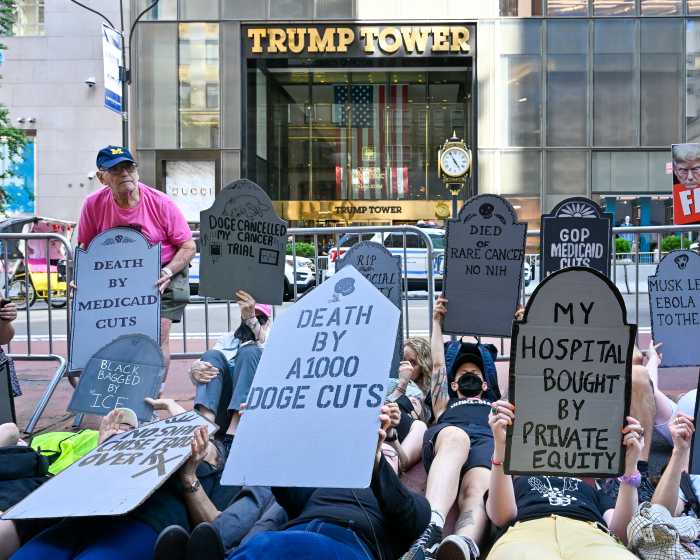
By SAM SPOKONY | Even though one of the city’s illegal hotel kingpins has now been shut down, housing advocates say that the resulting loss of rent-stabilized apartments is still a major problem.
A year after the city filed a lawsuit against Smart Apartments — also known as Hotel Toshi — for violating a state law that bans tourist rentals of less than 30 days in residential apartments, Mayor Bloomberg announced on Nov. 19 that a settlement had been reached.
Smart Apartments will pay a $1 million penalty to the city, and is now permanently prevented from doing business in the Big Apple, according to a statement released that day.
The city’s lawsuit cited about 50 buildings in Manhattan and Brooklyn that contained units used by Smart Apartments as illegal hotel rooms. Seventeen of those buildings are located in the Downtown Manhattan area — 14th St. and below — according to a list released by the Mayor’s Office.
This newspaper learned last week that, in at least one of those buildings, apartments that were formerly rent-stabilized — and which were, for years, used by Smart Apartments as illegal hotel units — are now being leased by the landlord for market rate rents.
“Our landlord was completely in cahoots with [Smart Apartments],” said a resident of 79 Clinton St., one of the buildings cited in the lawsuit, who requested anonymity for fear of reprisal from the landlord. “Before [Smart Apartments] came in, the whole building was rent-stabilized,” the tenant said. “Then, they started using five of the apartments as illegal hotel rooms. And now that the illegal hotels are gone, we know that all those units now have tenants who are paying market rate.”
Gilman Management Corporation, the owner of 79 Clinton St., did not respond to a request for comment.
Housing advocates believe that landlords are now capitalizing off their association with Smart Apartments — which allowed them to use residential units for years without listing a legal tenant — by illegally deregulating apartments that were once rent-stabilized.
Those advocates are also criticizing the state’s department of Homes and Community Renewal — which oversees rent regulation — for not launching an investigation into these allegedly illegal practices by the landlords.
“What we’re seeing is landlords using the vagueness of H.C.R. regulations to install illegal hotels in rent-stabilized units,” said Tom Cayler, who leads the West Side Neighborhood Alliance’s Illegal Hotel Committee. “And if the landlords get caught, it’s actually a win-win situation for them, because even though they no longer have an illegal hotel unit, they now have a free market unit. And H.C.R. is doing nothing to rectify it. They have no interest, as far as I can see, in re-regulating units that were used for illegal hotels.”
Cayler added that he believes many units across the city have been unlawfully deregulated as a result of illegal hotel use, and that the full impact of this practice will not be revealed until a thorough investigation is conducted.
H.C.R. did not respond to a request for comment.
State Assemblymember Linda Rosenthal, whose district covers parts of Hell’s Kitchen and the Upper West Side, has also been pushing H.C.R. to investigate this issue, after learning that 89 rent-regulated apartments in a W. 73rd St. building may have been unlawfully deregulated through illegal hotel use.
In a July 2012 letter to H.C.R., Rosenthal asked the state agency to examine the rent histories of each unit in the building, to determine which had been illegally deregulated and to “aggressively enforce” rent regulations for those units.
Rosenthal followed that up with another letter this past January, but never got a response from H.C.R. in writing, she said.
Instead, an H.C.R. representative reportedly told her that investigating the allegedly illegal deregulations was not a priority for the agency at that time.
“I thought it was such a wasted opportunity,” said Rosenthal, speaking last week. “When all those units suddenly became deregulated after the illegal hotel operation was gone, it was a perfect time for [H.C.R.] to step in and recapture them. There are just too many New Yorkers in need of affordable housing for this to be overlooked.”
Rosenthal continued to call on H.C.R. to launch an investigation, especially now that Smart Apartments has officially been shut down.
“I would love for H.C.R. to take a stronger stand on this now,” she said. “It’s such a simple case to make, but it just requires some effort.”



































